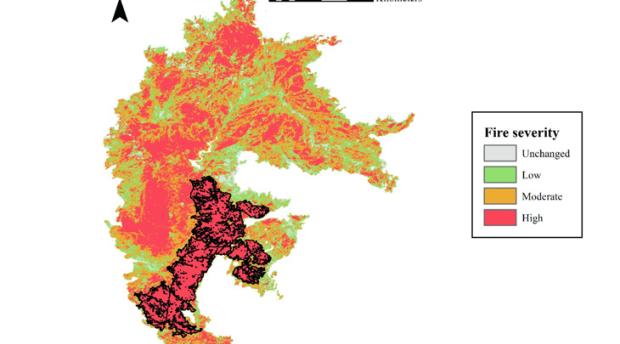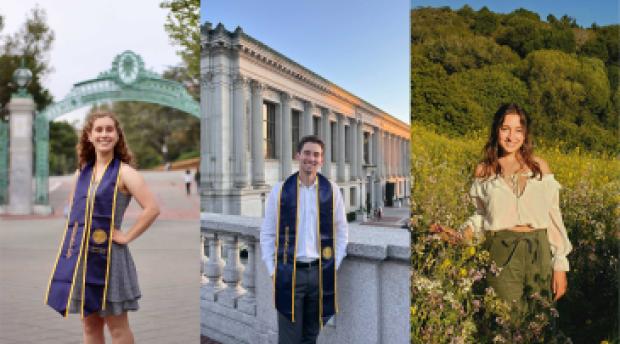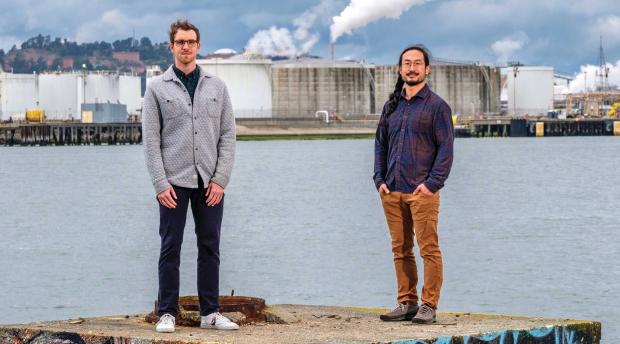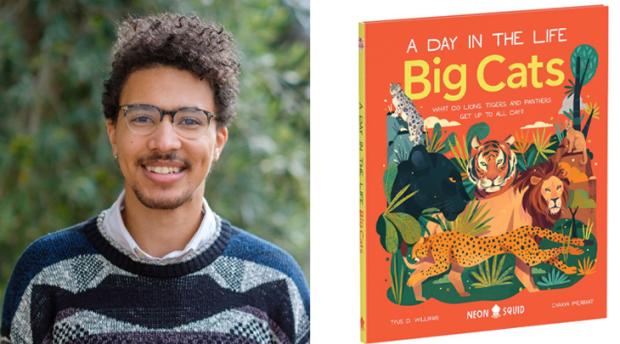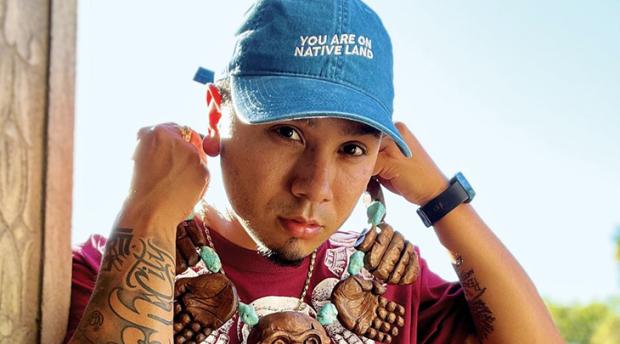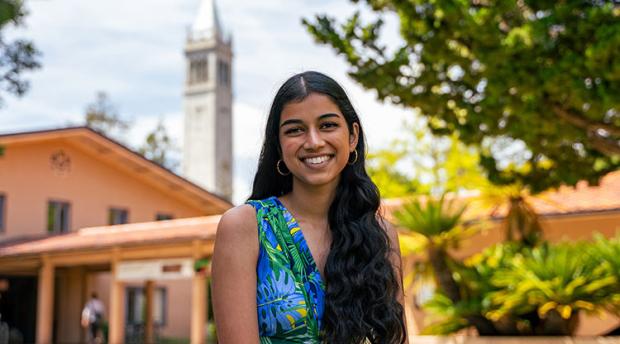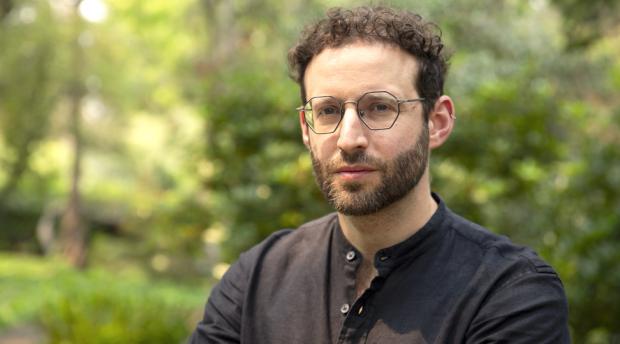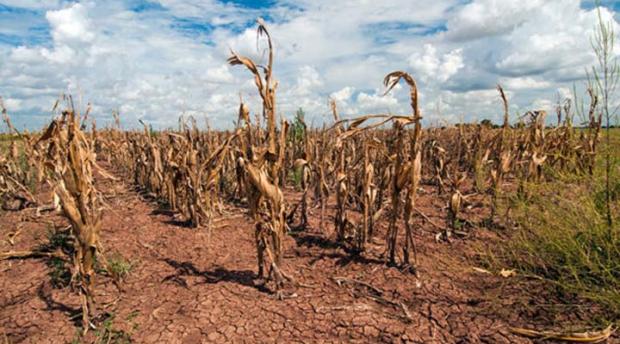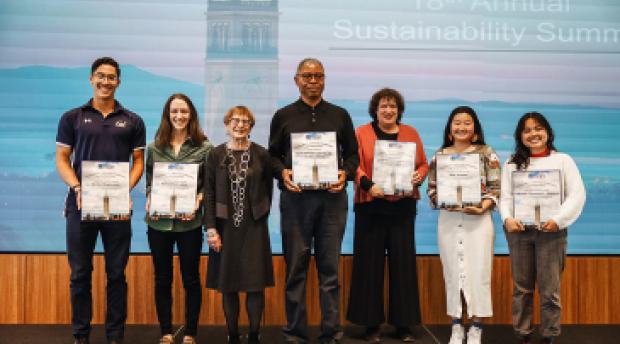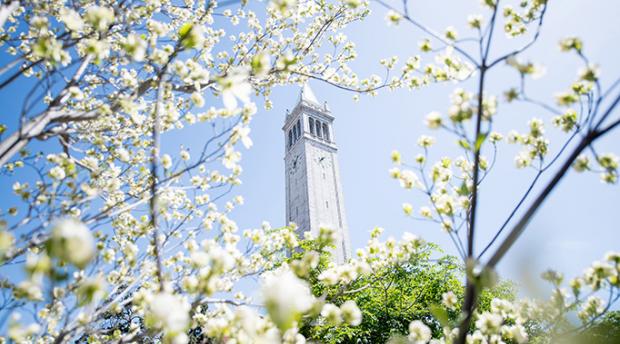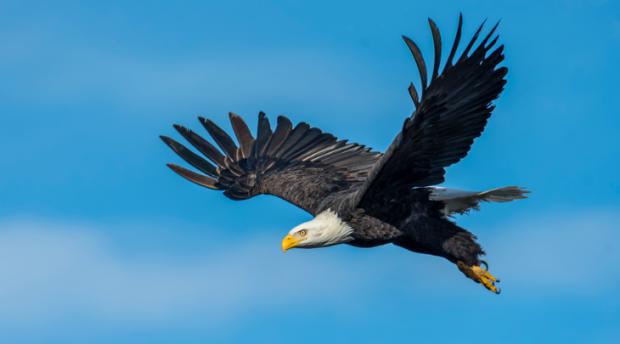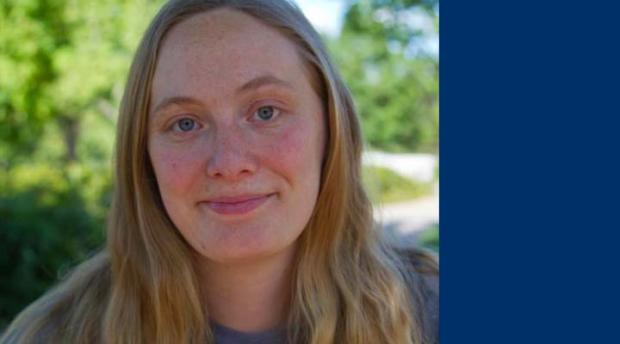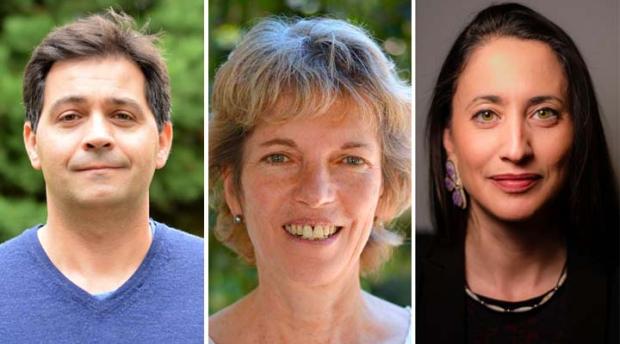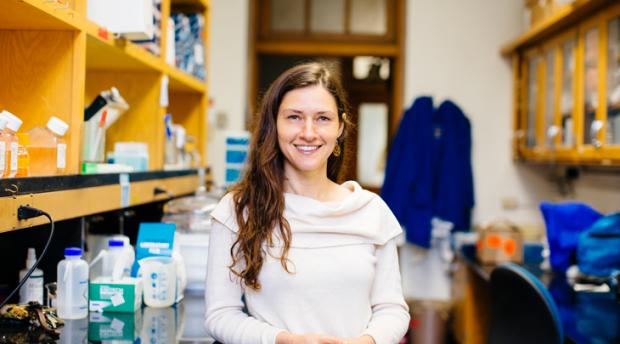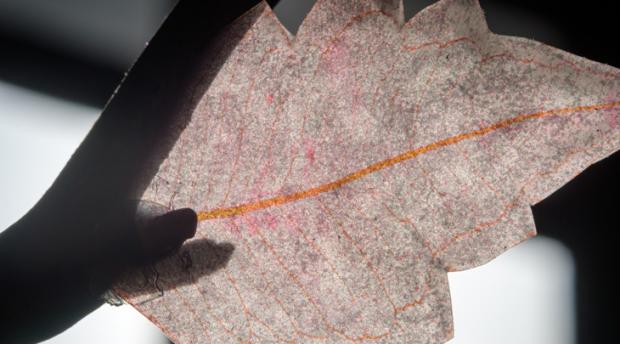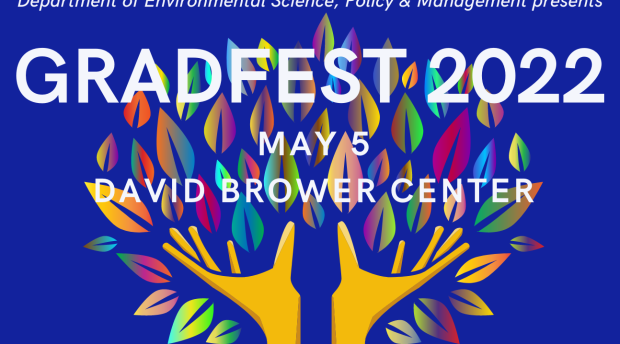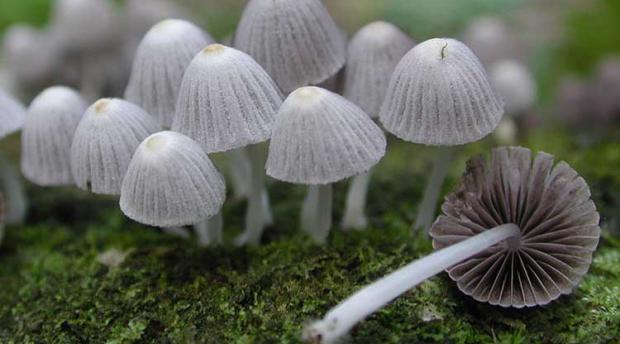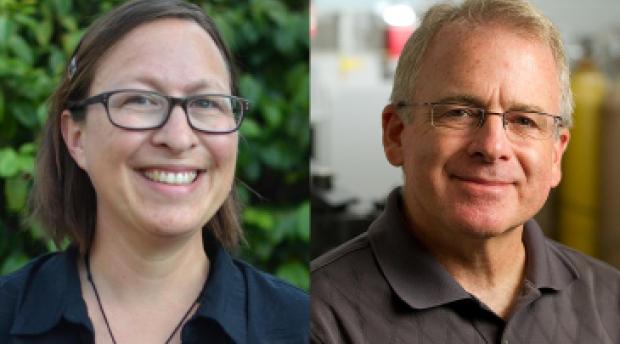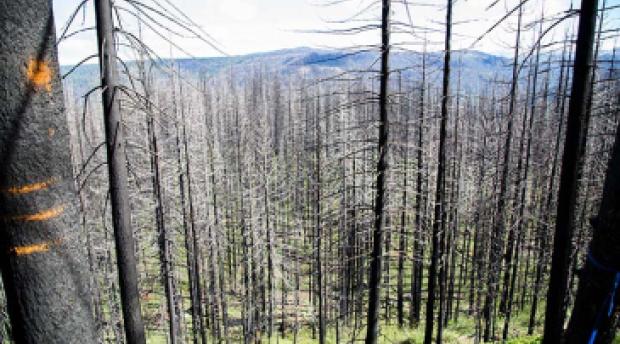A new study published in the journal Forest Ecology and Management has identified dead biomass and live tree dentistry as major factors in the 2020 Creek Fire.
Three seniors honored with Kenneth L. Babcock Prize in Environmental Science
Endowed as a tribute to longtime soil chemistry professor Kenneth Babcock, the prize recognizes high-achieving ESPM undergraduates.
Toxic Tides
Breakthroughs magazine features a project led by Professor Rachel Morello-Frosch, which visualizes how sea-level rise may threaten hazardous facilities and the surrounding vulnerable communities along California’s coastline.
Tyus Williams' book on big cats aims to inform kids
A graduate student in the Schell lab, Williams' first book is a part of Neon Squid's A Day in the Life series.
Student Profile: Robin Lopez
A PhD candidate in the Grantham Lab, Lopez focuses his dissertation research on water quality in streams and the environmental justice dimensions of river restoration.
Graduating environmental science student Anjika Pai awarded University Medal
Described as "well-rounded, intrepid, and entrepreneurial" by Professor Alastair Iles, Pai plans to study environmental law at Northeastern University in Boston.
What is the role of reparations in delivering climate justice?
Daniel Aldana Cohen, assistant professor of sociology and director of the Socio-Spatial Climate Collaborative, spoke to Berkeley News about the importance of linking the climate crisis to colonialism and racial capitalism.
Striking a balance between climate despair and magical solutions
In a recent Berkeley Blog, ESPM professor Ron Amundson discusses the importance of narrative framing in the stories we tell ourselves about the environmental challenges facing the world.
Faculty and students honored with 2022 Sustainability Awards
Professors Celine Pallud and Kate O’Neill and undergraduates Gabrielle Christina Ledesma Ambayec, Moe Sumino, and Justin Hogenauer were recognized for helping make UC Berkeley more sustainable.
ESPM graduate students receive National Science Foundation awards
Seven current and incoming graduate students will be supported by the prestigious research fellowship.
Quantifying the relationship between birders and the environment
ESPM researchers hope the “bigger” and “brighter” birds popular among citizen scientists can aid outreach and conservation efforts.
More oil and gas wells in redlined neighborhoods
Study shows that historically marginalized communities are exposed to more wells and their accompanying pollution.
For cannabis farms, ecosystem science is scarce
High Country News interviews Phoebe Parker-Shames, a PhD candidate studying the West’s emerging, and rarely researched, industry.
Two ESPM-led projects receive seed grant funding from the Berkeley Food Institute
The award will support research on pathogens and coffee in Costa Rica, and biodiversity and food sovereignty on Hawai'i.
Berkeley Voices: Biologist confronts deep roots of climate despair
Bree Rosenblum, a professor of global change biology in ESPM, speaks about confronting the root causes of the environmental crisis and expanding our idea of what it means to be human on our planet.
Visualizing the architecture of a leaf
Learn about graduate student Mickey Boakye's work on leaf structure and adaptation, and see how artist-scientist Dr. Juniper Harrower and composer Marcus Norris interpret their research.
ESPM presents: GradFest 2022!
Join us on May 5th in-person or remotely for this day-long public symposium featuring research talks from our graduating students.
Polynesian Island yields ‘treasure trove’ of fungal biodiversity
Matteo Garbelotto, ESPM faculty member, explores some of the fungal kingdom's "uncharted territory."
Two Rausser College alumni honored by Society for Freshwater Science
Patina Mendez, ‘07, and Gary Lamberti, ‘83, were recognized with 2022 Career Awards.
UC Berkeley researchers suggest rethinking California’s conflicting forest carbon policy
New analysis suggests challenges to meeting California’s greenhouse gas reduction targets for natural and working lands.


